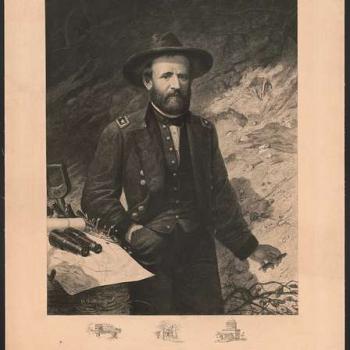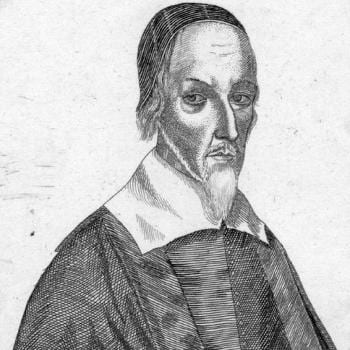Next, he discusses feudalism. His scholarship here is a bit outdated; he makes the feudal structure into a single “thing” in a way that modern scholars are less likely to accept. That said, his point still holds: in the medieval period, ownership was itself always provisional. A villein held his land on lease from a noble, who held his land on lease from another noble, who held it on lease from another noble, who held it on lease from the king, who himself held it on lease from God. In other words, the social system itself implied the provisional nature of “ownership.”
Further, he cites Aquinas, who (and let’s recall that he’s a Dominican) is a top authority from his perspective. Thomas, he notes, observes a similar distinction: property itself is natural to human beings because they need to be able to possess something so as to plan for the future—to eat, to survive, that is, to live. The exact nature of this division, however, was contingent, based on historical circumstances:
[I]t depended on specific conditions and stages of development. Thus nature dictated no division of property, though it implied the necessity of some property; the need of the division was only discovered when men set t work to live in social intercourse. Then it was found that unless divisions were made, existence was intolerable; and so by human convention, as St. Thomas sometimes say, or by the law of nature [Jarrett reads this as the same as the ius gentium], as he elsewhere expresses it, the division into private property was agreed upon and took place. (Medieval Socialism 77)
Lastly, there is the issue of the state, which medieval thinkers simply could not have understood in the same way; feudal relations, a lack of mass communication, etc. limited the power of the centralized government. Over time, however, the power of the king itself became a sort of “state,” one capable of doing basically anything. Many lawyers subtly argued for how it was that the monarch could dispense his or her power in this way. The exact arguments are not important; what is worth noting, however, is that, insofar as forms of governance are subject to historical conditions, there is no absolute sense in which the state or other governmental bodies could not be used to reorganize property relations in a given society. One might argue that an overly-powerful state is a bad idea under current conditions. One, however, per Jarrett, cannot merely reject such an option out of hand. In fact, one could contend that, in our global society, one in which localities have comparatively little power over and against trans-national corporations and other bodies, that a strong state is the only hope for fighting for more just property relations.
He discusses quite a few other things: various reformers, how it is that many medieval “communists” were actually apologists for increasing secular power (e.g. Wycliffe), etc. His point, however, remains the same: the medieval view of property is that it is necessary, but provisional. The exact organization it takes is dependent upon material conditions. This is, believe it or not, not terribly different (in general terms) from certain socialistic theories that accept “personal property,” while denying the bourgeois concept of private property as some inalienable absolute.
Concomitant with this is the fact that what we call “charity” is a matter of justice. Voluntary giving is often said to be a matter of charity, as if that excused people from needing to do it in meaningful ways. “Charity,” however, comes from the word “caritas,” or love. The Christian virtue that goes by this name has to do with love for one’s fellow human beings; it is enjoined upon us as believers who must pray for our enemies and do good to those who hate us. It, however, has little to do with almsgiving, which is related to justice. As Jarrett writes, summarizing the beliefs of medieval economists:
-
A man is obliged to help another in his extreme need even at the risk of grave inconvenience to himself.
- A man is obliged to help another who, though not in extreme need, is yet in considerable distress, but not at the risk of grave inconvenience to himself.
- A man is not obliged to help another whose necessity is slight, even though the risk to himself should be quite trifling.
[…]
- [T]he giver should possess superfluities.
- [T]he receiver should be in need.
Where both these suppositions are fulfilled, the duty of almsgiving becomes a matter not of charity, but of justice. (Medieval Socialism 141)
In other words, not only can property relations be fundamentally rearranged in a matter totally consonant with Catholic Social Teaching but also we are under an obligation at all times to be giving alms, as a matter of justice, as long as some fairly-simple criteria are met. Property is provisional in that we need to be willing to part with it as long as another is in need and we are not. Our absolute conception of property rights can only conceive of such giving as a voluntarist act of “charity,” rather than the question of justice that it truly is. In this way, medieval people and socialists have more in common than we might expect.
One might quibble with Jarrett’s comparison. Some socialists might argue that he emphasizes the state too much in his definition. He doesn’t talk enough about worker ownership (though it is implied as a possibility in how he discusses the contingent nature of property relations). Regardless, he provides a fascinating rebuke to the way that contemporary Christians talk about property and socialism. If a fairly-conservative, orthodox Dominican can talk in these terms, we are obliged to listen.













